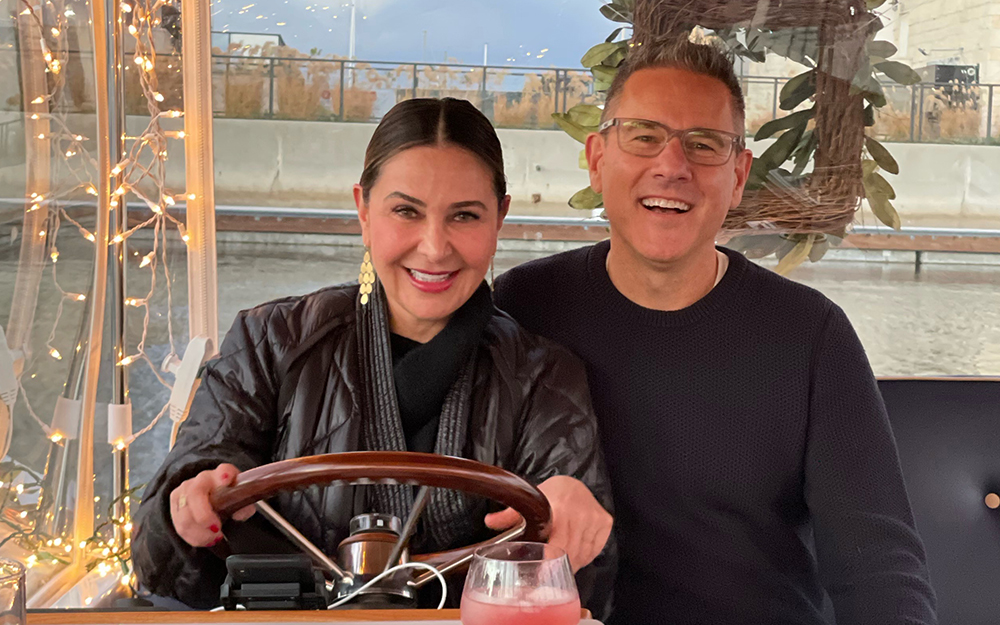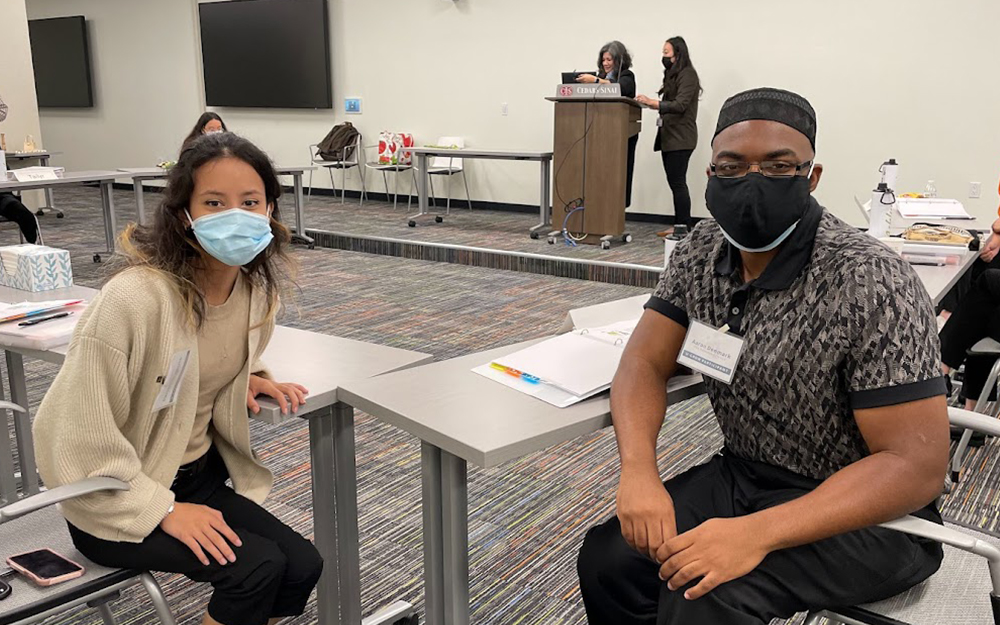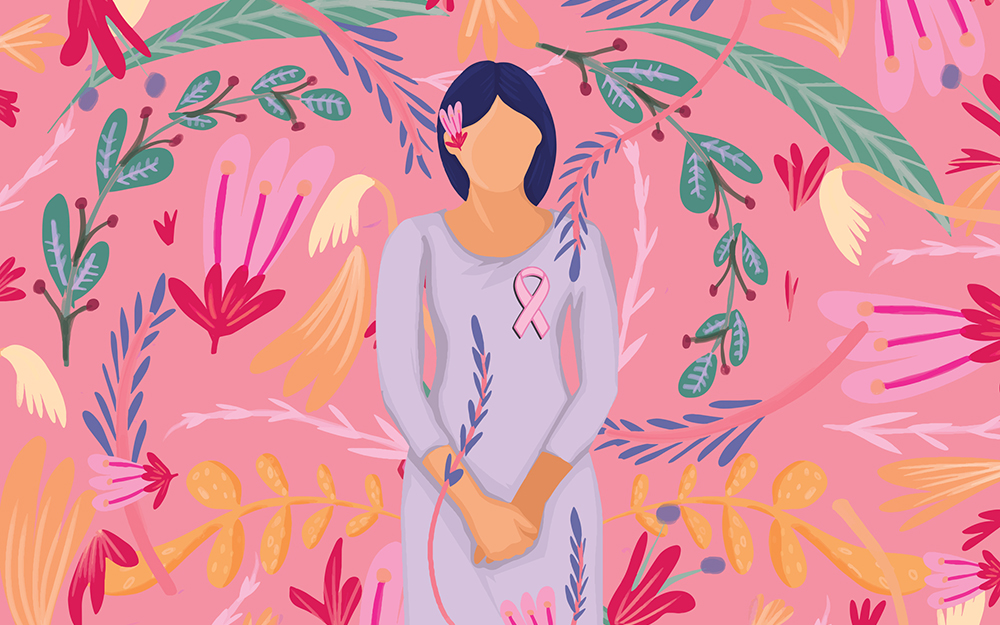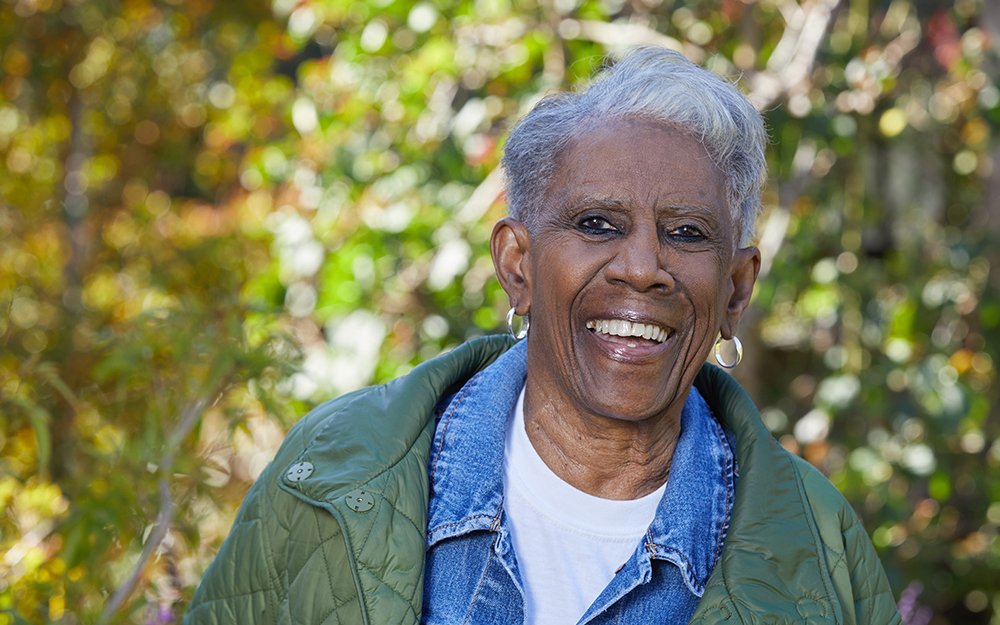Detecting Paget's Disease Just in Time
Date
November 16, 2022

Date
November 16, 2022
Credits
Medical providers featured in this article

In Brief
{{cta-block}}
When the world went on lockdown in March 2020, Marjan DiPiazza enjoyed the slower pace by indulging in a more elaborate self-care routine. The busy advertising executive began working out more often, soaking in nightly baths, and experimenting with lotions, body oils and bath salts. By May, her skin broke out in a painful rash.
"My skin often reacts to new soaps, scrubs and creams, so I made an appointment with my dermatologist to get some relief," says Marjan, age 50.
"Doctors’ offices were just starting to open back up, so she tried to address all my healthcare concerns during that one visit. She kept asking me, ‘Is there anything else I can check out for you or anything else you want to address?’"
Until then, Marjan hadn’t given the irritation around her nipple a second thought.
"Everyone I encountered at Cedars-Sinai was so compassionate. I felt like I was in the best possible hands."
What lies beneath
Marjan left the dermatologist’s office with two prescriptions: one for the rash scattered across her body and the other for the irritation around the nipple. She was told to come back in two weeks if the redness around her nipple didn’t clear up.
"I had spent the previous two months working out and living in my sports bra and performance wear since we were in quarantine and not going anywhere,” Marjan says.
"Strangely, many days the irritation would be gone. Other days it would just feel slightly sensitive, like something had rubbed my nipple a little raw."
Marjan treated the area with the prescription cream, but two weeks later, her nipple still looked raw and angry. She worried she might have psoriasis or some other inflammatory skin condition. She went back to her dermatologist, who did a biopsy.
When the results came back several days later, Marjan learned she had a rare form of breast cancer called Paget’s disease of the breast.
Learning about Paget’s
Named after British doctor Sir James Paget, who noted a relationship between changes in the nipple and breast cancer in 1874, Paget’s disease of the breast is an aggressive breast cancer that spreads quickly. It primarily strikes women in their 50s and 60s, and most patients don’t realize they have Paget’s until the cancer has spread.
Marjan wasn’t due for her annual mammogram for another eight months when the skin biopsy picked up Paget’s. Like many women, she didn’t realize that skin changes around the nipple and areola (the skin surrounding the nipple) could be a sign of breast cancer.
"Paget’s can be more difficult to detect than other forms of breast cancer because it often shows up on the skin first, and those changes may not be picked up on a standard mammogram screening or even an ultrasound,” says Cedars-Sinai oncologist Dr. Philomena McAndrew.
In fact, even after Marjan had a positive biopsy for Paget’s, the cancer didn’t show up on a mammogram or ultrasound.
"My doctors knew it was there from the biopsy, so they moved quickly to develop a treatment plan,” says Marjan.
{{providers}}
Compassionate care

Marjan has had a lot of experience navigating healthcare systems. Her mother, a lifelong smoker, was treated for heart and lung disease before she died of lung cancer in 2010. Marjan was by her side for all of it.
But with Marjan’s own health crisis happening at the height of a global pandemic, she was forced to navigate appointments alone, without her husband.
"Cedars-Sinai’s Breast Center was warm and inviting—nothing like the sterile hospitals I’d visited with my mom," Marjan says.
And the highly skilled professionals guiding her care felt more like teammates than authority figures.
"Everyone I encountered was so compassionate. I felt like I was in the best possible hands,” she says.
Marjan opted for a double mastectomy—an approach that her doctors embraced, and one that would allow her to sidestep radiation and chemotherapy. Within one month of her diagnosis, she was scheduled for surgery followed by immediate reconstruction.
In Discoveries: Scientists Aim to Predict Breast Cancer Risk
Increased awareness
Before Marjan learned about Paget’s, she didn’t realize that breast cancer could show up in the skin around her nipple. She wasn’t aware that redness around her nipple and areola demanded a visit to her doctor.
"I don’t think many women are assessing their nipples for changes,” Marjan says. “My left nipple just looked like it was chafing a bit—something I could easily attribute to wearing a sports bra for hours on end.”
According to Dr. McAndrew, women should regularly examine their breasts for changes such as:
- Lumps or bumps in the breast or underarm area (tumors can be as small as a chocolate chip)
- Changes in the size and shape of your breast
- Swelling or dimpling in the breast
- Changes in the skin of the breast, including the nipple or areola (it may appear red, scaly or texturized like an orange peel)
- Discharge from the nipples
“If you have any of these signs or symptoms, it’s important to get checked out by a healthcare professional,” Dr. McAndrew says. “And make sure you are up to date on your mammograms and breast ultrasounds, if indicated.”
Marjan still has trouble identifying herself as a breast cancer survivor.
"I feel like I got off easy,” she says.
But she knows her story could have played out differently. Paget’s disease is fast-moving, and if she had waited until her next mammogram was due, she would have required extensive treatment, including chemotherapy and radiation.
"When Dr. McAndrew got the pathology back, she said, ‘You have an angel sitting on your shoulder,’” says Marjan. “And it’s all because I decided to come clean with my dermatologist about the rash around my nipple.”





